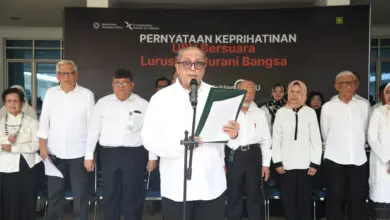Vietnam using autonomy mechanism to revolutionize universities
The autonomy mechanism among universities in Vietnam has offered more room for these higher education institutes to better satisfy the demands of the market, but there raises a need for a master plan on university autonomy. These are opinions of participants in the conference on university autonomy in 2022, held by the Ministry of Education and Training (MoET) yesterday.

Deputy Minister of Education and Training Hoang Minh Son reported that with the implementation of Resolution No. 77/NQ-CP on piloting renovation of operation mechanism for public higher education institutions from 2014-2017, higher educational facilities have made great strides in opening up resources and the capacity of training institutions has been maximized. Currently, 142/232 universities are eligible for autonomy according to the provisions of the revised Higher Education Law.
Thanks to this autonomy mechanism, piloting universities can attract more capable lecturers and researchers, with the percentage of those owning a doctorate degree reaching 31 percent in 2021. In the four years from 2018, the average salary of employees in these universities rose by 18.7-20.8 percent. The rate of lecturers earning less than VND100 million a year (US$4,300) dropped to 12.7 percent in 2021, while the rate of those earning more than VND200 million per year ($8,600) rose to 31.34 percent.
In the next 5 years until 2026, in order for this autonomy to be more comprehensive and effective, MoET proposed that the National Assembly amend the laws related to autonomy activities of higher educational institutes, the State Budget Law to allow non-business units in the educational field to transfer the surplus amount of student support funds to the next academic year to maintain this support to learners. MoET also mentioned focused investments in key universities, especially in prioritized majors, so that Vietnam can own international-standards higher educational institutes.
President of Hanoi University of Science and Technology Huynh Quyet Thang commented that renovating university governance capacity, particularly human resources management, is the key to success. There must be a focus on improving their quality and maintaining a stable salary for them.
Prof. Dr. Pham Hong Chuong, President of the National Economics University, stated that thanks to autonomy, universities can now develop new training majors in a timely matter to answer the demands of the labor market, while admission methods can be varied to attract the most talented learners possible to their dreamt majors.
Assoc. Prof. Dr. Tran Mai Uoc from HCMC University of Banking informed that university autonomy is done in the three aspects of task doing, organization, and finance. Higher educational institutes should be given freedom in seeking suitable financial sources and using currently available ones, as well as investing in future assets. He stressed that financial autonomy does not mean universities have to take care of all financial matter by themselves, but that the State should still invest money in public universities and give them more freedom of decision making as to financial matters in accordance with a framework.
He then proposed that the State implement a training order mechanism to all universities, beginning with key ones in the nation and region to have sufficient high-leveled human resources for the period of 2021-2030.
To read more: Saigon Online




